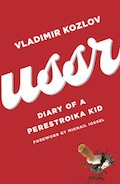The Intelligent Investor is not our usual fare here at Fiction Advocate, but a combination of factors compel me to write about it. Specifically: that I read this book, and that my name is on the masthead. I’m hoping the market will bear it.
That said, another set of factors compels me as well. You’re probably familiar with them in some form or another: the 2008 financial crisis; rising CEO pay; declining wages for workers; hedge funds; Occupy Wall Street; record corporate profits; record student loan debt; unlimited and undisclosed corporate contributions to the politics that shape our government, and so on and so on. Chances are you’re not real happy about most of these. You’d probably even like to do something. If you could.
One perfectly natural reaction is to get mad and try to get away. Steer clear of malls; support small businesses; buy local and organic and so on and so on. All of these are great, and I support each of them — but none of these alternatives offers any kind of real solution. You’re bringing a knife to a gun fight, with Skynet. And by avoiding publicly traded companies, you’re also denying yourself access to a whole host of awesome things like Apple computers, Google searches, Starbucks coffee, pretty much all pharmaceuticals and communications technology. There’s really no way you’re reading this post without using some product by some company whose shares are making some dickhead rich on Wall Street right now*.
But even beyond the fact that avoiding Wall Street is pretty much impossible, the popular disdain for it may actually be harmful. Think about it like politics: People are disgusted with politics, so they don’t vote, and the government only gets worse. People are disgusted with big corporations and greedy capitalists, so they don’t exercise their (admittedly, limited) power to engage, and the economy only gets worse. This is why The Intelligent Investor is a book that more people should read. Especially, I assume, if you are part of our target audience here at FA, i.e. people like me who have spent most of their lives with no real interest or understanding of investing in stocks. If most of your knowledge of the stock market comes from “Trading Places,” then this book is for you.





